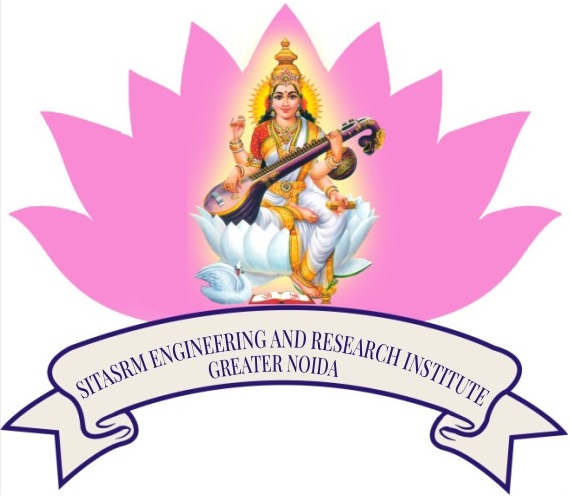 SITASRM ENGINEERING & RESEARCH INSTITUTE
SITASRM ENGINEERING & RESEARCH INSTITUTE
 SITASRM ENGINEERING
SITASRM ENGINEERING & RESEARCH INSTITUTE

SITASRM ENGINEERING & RESEARCH INSTITUTE
Menu
Unleash Your Inner Maestro: The Art of Automation Scripting
 (1).jpg)
Introduction
"Any sufficiently advanced technology is indistinguishable from magic." - Arthur C. Clarke.
As engineering students, you're not just observing magic; you're learning to create it. You're building the future, line by line of code, circuit by circuit. In this journey, efficiency is paramount. Manual, repetitive tasks can be a major bottleneck. They slow down innovation. They hinder progress. This is where automation scripting comes in. It's not just a tool; it's a fundamental skill. It transforms your workflow. It elevates your impact. This blog dives into the art of automation-scripting. It focuses on its relevance for computer science and IT students, empowering you to turn tedious tasks into seamless processes.
Unleash Your Inner Maestro: The Art of Automation Scripting
"The first rule of any technology used in a business is that automation applied to an efficient operation will magnify the efficiency. The second is that automation applied to an inefficient operation will magnify the inefficiency." - Bill Gates. This quote speaks volumes. As future engineers, you're entering a world powered by efficiency. Automation is not just a buzzword. It's a fundamental skill. It can transform your workflow. It can elevate your impact. This blog dives into the art of automation scripting. It focuses on its relevance for computer science and IT students.
Why Automate? The Engineer's Perspective
Time is your most valuable resource. Manual, repetitive tasks drain it. Think about it. How many times do you:
-
Transfer files?
-
Run the same set of commands?
-
Test your code with identical inputs?
-
Collect data from multiple sources?
-
Deploy applications in the same manner?
These tasks are ripe for automation. Automation scripting these processes offers numerous benefits:
-
Increased Efficiency: Automation completes tasks faster than manual execution. This frees up your time. You can focus on complex problem-solving. You can dedicate yourself to creative endeavors.
-
Reduced Errors: Humans are prone to mistakes. Scripts, once written correctly, perform tasks flawlessly. This leads to more reliable outcomes. It minimizes the risk of costly errors.
-
Consistency: Automation ensures tasks are performed in the same way every time. This is crucial for maintaining standards. It's vital for reproducible results.
-
Scalability: Automating tasks makes it easier to handle larger workloads. You can manage more servers. You can process more data. You can deploy more applications without proportional increases in effort.
-
Skill Enhancement: Learning to automate is a valuable skill. It makes you a more effective engineer. It makes you a more sought-after professional.
Diving into the Scripting Toolkit
Several scripting languages are excellent for automation scripting. For computer science and IT students, these stand out:
-
Python: Python's readability and extensive libraries make it a top choice. It's great for system administration. It excels in data processing. It's powerful for web scraping. Libraries like os, subprocess, shutil, and requests are your allies.
-
Bash: If you're working with Linux or macOS, Bash scripting is essential. It allows you to automate command-line operations. You can manage files, directories, and processes efficiently.
-
PowerShell: For Windows environments, PowerShell is the go-to scripting language. It provides powerful control over the operating system. It's excellent for managing system configurations. It's also used for automating tasks in Microsoft Azure.
-
JavaScript (Node.js): While primarily known for web development, Node.js allows you to run JavaScript on the server-side. This opens doors for automating backend tasks. You can build command-line tools. You can automate server management.
Choosing the right tool depends on the specific tasks and your preferred operating system. Often, a combination of these tools can be the most effective approach for robust automation scripting.
The Art of Crafting Automation Scripts
Writing effective automation scripting is an art. It requires planning, logic, and attention to detail. Here are some key principles:
-
Identify the Task: Clearly define the task you want to automate. Understand its inputs, processes, and desired outputs.
-
Break it Down: Complex tasks should be broken down into smaller, manageable steps. This makes scripting easier. It also simplifies debugging.
-
Plan Your Logic: Outline the flow of your script. Use pseudocode or flowcharts to visualize the steps. This helps ensure your script is logical and efficient.
-
Write Clear and Concise Code: Use meaningful variable names. Add comments to explain your code. This makes your scripts easier to understand and maintain.
-
Handle Errors Gracefully: Anticipate potential errors. Implement error handling mechanisms. This prevents your scripts from crashing unexpectedly. Use try-except blocks in Python. Employ conditional statements in Bash and PowerShell.
-
Test Thoroughly: After writing your script, test it rigorously with various inputs. Ensure it produces the desired results without any errors.
-
Version Control: Use tools like Git to manage your scripts. This allows you to track changes. You can revert to previous versions if needed.
-
Modularize Your Code: For larger automation projects, break your code into reusable functions or modules. This promotes organization. It reduces code duplication.
Real-World Applications for Engineering Students
As engineering students, you can apply automation scripting in various ways:
-
Automated Testing: Write scripts to automatically test your software projects. This ensures code quality. It saves significant testing time.
-
Continuous Integration/Continuous Deployment (CI/CD): Learn to automate the build, test, and deployment processes for your applications. This is a crucial skill in modern software development.
-
Infrastructure as Code (IaC): Use scripting tools to provision and manage infrastructure resources (e.g., servers, networks) automatically. Tools like Terraform and Ansible are based on this principle.
-
Data Analysis and Reporting: Automate the process of collecting, cleaning, analyzing, and generating reports from data. This is valuable in various engineering disciplines.
-
Web Scraping for Research: Use Python libraries like Beautiful Soup and Scrapy to automate the collection of data from websites for research purposes.
-
Personal Productivity: Automate repetitive tasks on your own computer. This could include organizing files, scheduling tasks, or sending reminders.
Embrace the Power of Automation
Automation scripting is a superpower for engineers. It empowers you to be more efficient, more accurate, and more impactful in everything you do. Beyond just completing tasks, mastering automation transforms your problem-solving approach, enabling you to think about system design and efficiency at a higher level. It's a critical skill in today's fast-paced tech landscape, making you an invaluable asset in any engineering team.
Start small. Choose a repetitive task you perform regularly. Try to automate it using one of the scripting languages discussed. The journey of a thousand automated tasks begins with a single script. Embrace the art of automation. Master these skills, and you will undoubtedly elevate your engineering prowess in the digital age. Want to dive deeper into these essential skills and more?
Learn all about cutting-edge academic technology, programming, and advanced IT concepts with SERI through our comprehensive Computer Science and Information Technology programs for B.Tech. We equip you with the knowledge and practical expertise to excel in the world of engineering.















































